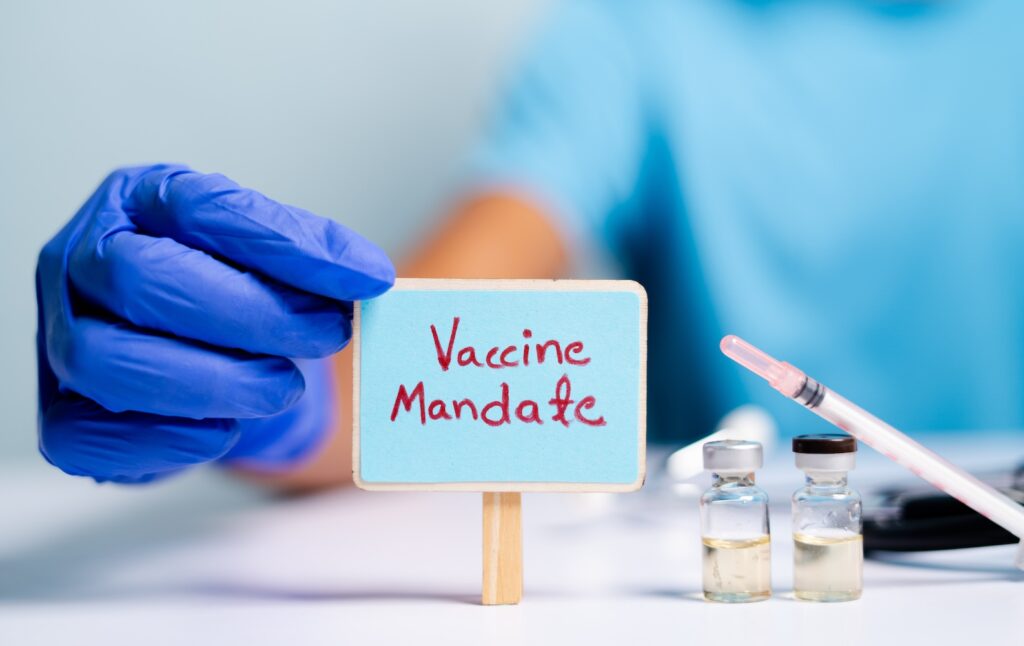Freedom is on a roll: Lawsuits for COVID vaccine religious exemptions piling up wins since Supreme Court ruling
Litigants seeking religious or moral exemptions from COVID-19 vaccine mandates have a growing string of successes in the courts, including two new cases in Philadelphia and Connecticut.
Writing…

Litigants seeking religious or moral exemptions from COVID-19 vaccine mandates have a growing string of successes in the courts, including two new cases in Philadelphia and Connecticut.
Writing at his Substack column Covidlawcast.com, attorney and activist Warner Mendenhall noted July 30 that, since May, seven federal appeals courts have issued 10 appellate decisions upholding the religious and moral beliefs of employees who rejected COVID-19 shots or testing.
Mendenhall observed:
“This run of wins has roots in last year’s Groff v DeJoy decision out of the Supreme Court. That case rejected the ‘de minimis’ standard for religious accommodations. The Court held that employers must show substantial costs to deny accommodation.”
In that case, postal worker and evangelical Christian Gerald Groff challenged the U.S. Postal Service’s refusal to allow him to be exempt from work delivering Amazon packages on Sundays so he may observe the Sabbath. The court ruled in Groff’s favor, a decision that strengthened religious freedom for all Americans.
Justice Samuel Alito, writing for a unanimous court, held Title VII requires an employer who denies a religious accommodation to show the burden of granting an accommodation would result in substantially increased business costs.
“Now, it requires everybody from the boardroom to the mailroom to work together to accommodate the faith of the employees in question,” Jeremy Dys, special counsel for litigation and communications at the religious freedom law firm First Liberty, said during a March interview at the National Religious Broadcasters Convention.
Dys explained further about the significance of the court’s ruling:
“So, no longer is it like, ‘Well, look, the job is more important than your religious beliefs. Do the job or get out.’ Now it is, ‘Now, we recognize that your religious beliefs are at least as important as your job; I think, actually, more important. Let’s sit down to figure out how we can accommodate your religious beliefs so that you’re a good employee here, as well.’”
In one victory since Groff, the U.S. Third Circuit Court of Appeals ruled July 29 in favor of appellant Rachel Spivack, a former Philadelphia assistant district attorney. Spivack had sued the City of Philadelphia and her former boss, District Attorney Larry Krasner, after she was fired for refusing a COVID-19 shot when she sought, and was denied, a religious exemption.
An Orthodox Jew, Spivack argued the city and Krasner violated both her First Amendment rights and the Commonwealth’s Religious Freedom Protection Act when her request for a religious exemption was denied while other people’s exemptions – such as those for medical reasons and union membership – were accommodated.
While the lower court ruled in favor of Krasner’s office and ultimately dismissed Spivack’s case, the Third Circuit reversed that decision, holding she is “entitled to a trial because Krasner’s actions against her arose from religious hostility,” said First Liberty.
“We are grateful that the Appeals Court recognized that these important issues deserve a jury’s consideration,” said First Liberty Senior Counsel Lea Patterson, who argued Spivack’s case before the court. “No American should lose her job for living according to her sincerely held religious beliefs.”
Meanwhile, in the case of Spillane v. Lamont, the Connecticut Supreme Court July 30 upheld the state’s law mandating school vaccinations with no religious exemptions, but sent the case back to the lower court to review the plaintiffs’ claims related to the Connecticut Religious Freedom and Restoration Act.
The lawsuit states:
“In April 2021, Governor Ned Lamont signed into law CT. P.A. 21-6, eliminating the religious exemption from school vaccination mandates for children in public and private schools in the State of Connecticut, in violation of the Connecticut Constitution, the United States Constitution and in violation of Connecticut’s Religious Freedom and Restoration Act.”
The plaintiffs further point out that since the school vaccine mandate “now permits exemptions for those with medical reasons,” the mandate “is now under-inclusive.”
Brian Marks, professor of law and public health at the University of New Haven School of Health Sciences, told WTNH News the fact that the Connecticut Supreme Court sent the case back to the Superior Court to review the plaintiffs’ claims related to Connecticut’s Religious Freedom and Restoration Act is significant.
“It puts under the magnifying glass the need of strict scrutiny. It’s not over yet,” he said.
The plaintiffs, Keira Spillane and Anna Kehle, have minor children and claim the state’s mandatory vaccination law violates their religious beliefs.
Connecticut Attorney General William Tong reacted to the state Supreme Court’s decision with the statement, “Vaccines save lives, school vaccine requirements remain in effect, and we are very confident in our position.
“This merely dismisses most aspects of the challenge while allowing plaintiffs to continue to press one remaining part of their case in state court, where we will aggressively defend the state’s necessary and lawful actions to protect public health.”
Attorney Lindy Urso, who represents the plaintiffs, said, nevertheless, in comments to WTNH News:
“Our case has always centered around Connecticut’s Religious Freedom Restoration Act and our firm belief that the removal of the religious exemption is in clear violation thereof. This decision is a victory for our plaintiffs and a victory for religious freedom in Connecticut and we look forward to pressing ahead with our injunction motion so that we can get these disenfranchised children back to school while we await our trial.”



